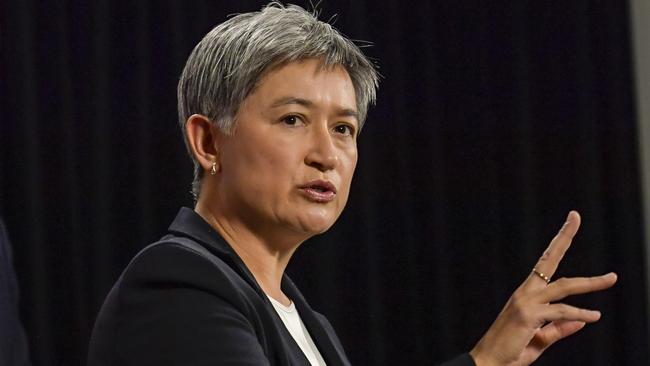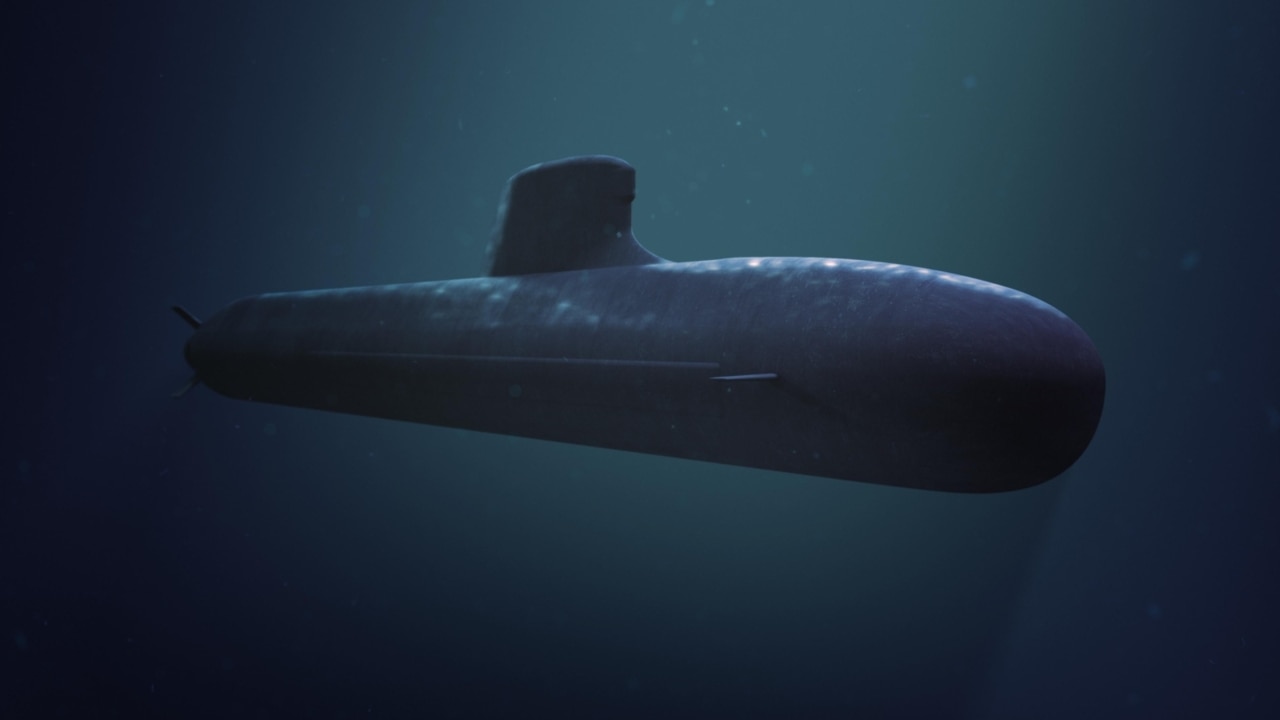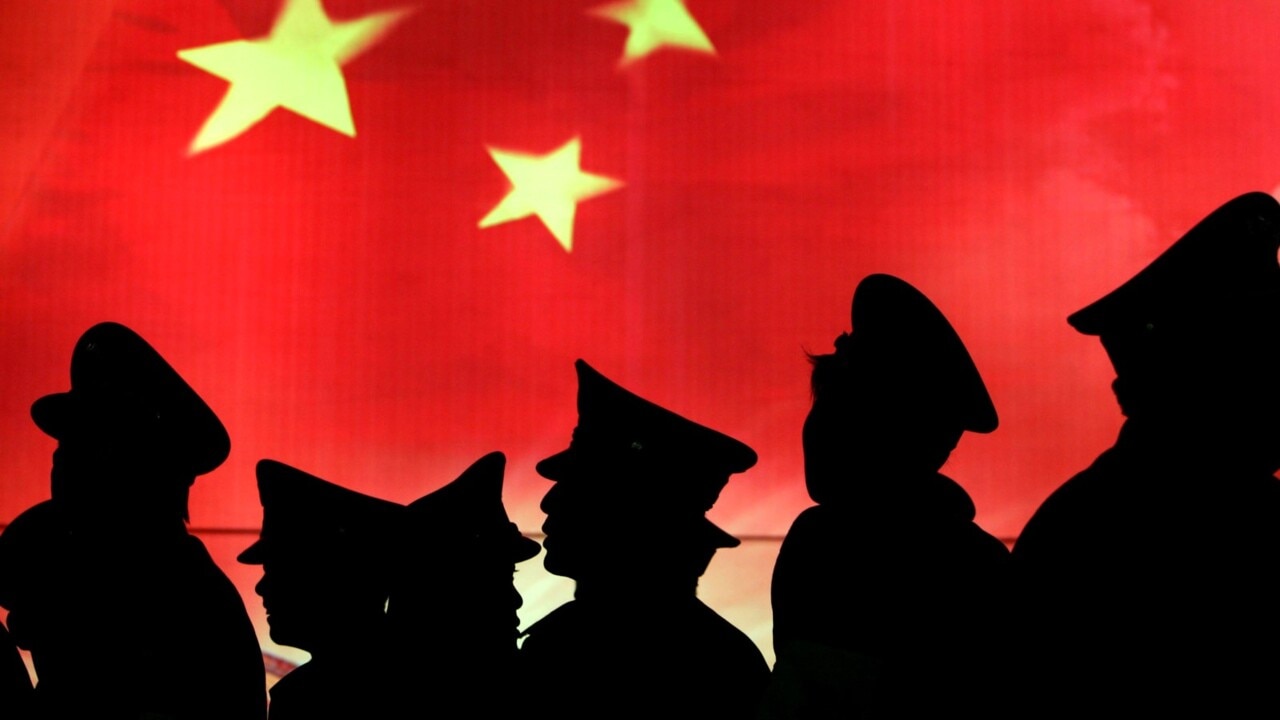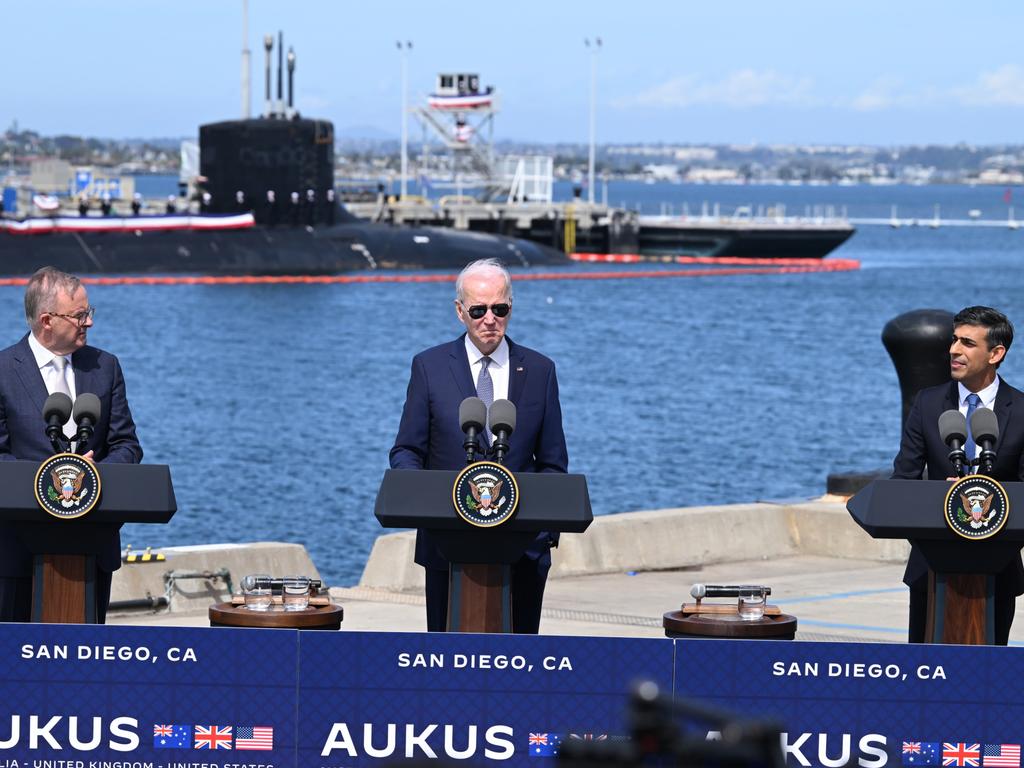South Australia to be key a nuclear waste storage facility under AUKUS submarine deal: Penny Wong
Australia has just over 20 years to build a domestic nuclear waste storage facility to deal safely with the spent fuel used to propel the submarines acquired under the AUKUS deal.

Australia has just over 20 years to find and build a domestic nuclear waste storage facility to deal safely with the spent fuel used to propel the submarines acquired under the AUKUS deal.
Foreign Minister Penny Wong said the deal meant Australia would be obliged under the terms of the Nuclear Non-Proliferation Treaty to store all nuclear waste generated via the program. A site must be found and be fully operational by the early 2050s.
South Australia is likely to play a key role in identifying and possibly providing a site for the waste storage facility, with the state examining the issue in 2016 when former governor Kevin Scarce headed a royal commission that recommended creation of a nuclear waste storage industry in SA.
The Scarce report estimated the cost of identifying a site and conducting geological testing to ensure its stability could run to $1bn, which would have been easily recouped through customer nations wanting to offload spent nuclear fuel and by-products.
The total value of a domestic nuclear waste industry was estimated at around $100bn to the state economy and the fact Australia is now required to build such a facility under AUKUS will revive calls for a broader waste storage industry to be examined to recoup costs from the $368bn deal.

The plan was only shelved on the eve of the 2018 state election when the Liberal opposition withdrew in-principle bipartisan support for exploring the idea, prompting then Labor premier Jay Weatherill to scrap the plan.
Senator Wong told The Australian the process of identifying a site would be led by the Department of Defence, with no decision yet as to which state would be home to the facility. “We have a responsibility because we are very committed to the non proliferation treaty to deal with nuclear waste appropriately,” she said.
“We will not have to store anything until the 2050s. But we will have to find a location to store the waste from nuclear propulsion. What we will do is go through an audit of Defence land, Defence estate, and Defence will make recommendations to government. But we are talking some decades off.”
The announcement of full details of the AUKUS deal was met with huge relief in South Australia, with Premier Peter Malinauskas privately concerned last week about two key issues: the timing of expansion work starting at the Osborne shipyard, and the extent of life-of-type extension work on the Collins-class submarines.
There were fears SA could face another “valley of death” – the lag time between work ending and commencing on major defence projects.
However, the detail provided on Tuesday prompted elation in SA, which stands to gain 8000 direct jobs from the good news on both those fronts.
Senator Wong hailed the deal as “huge news” for her home state, saying it eclipsed the creation of the car industry in the 1950s.
“This is the biggest single investment in Australia’s history, but for those of us in SA, it is the biggest single investment in SA in our history, full stop,” she said.
“It will transform our state, it will transform our economy. It will change for decades to come the opportunities young South Australians have in a much greater way than the car industry.”
Off the back of the AUKUS announcement, Mr Malinauskas made a snap decision to fly to the UK on Wednesday to visit the Barrow-in-Furness shipyard where more than 10,000 people are employed by BAE Systems building the Astute and Dreadnought submarines for the Royal Navy. “I want to see first-hand exactly what occurs on the ground there, particularly around its training and skills efforts about developing the workforce they require to build nuclear submarines over there,” he said.
The Premier’s other key priority in the immediate term will be to work with the university sector to ensure new courses are created to provide the requisite skills to deliver on the subs projects. It is one of the key reasons he is pushing for the merger of University of Adelaide and UniSA, to ensure what will be Australia’s largest university by enrolments has a unique focus on defence as part of its offering.
More Coverage









To join the conversation, please log in. Don't have an account? Register
Join the conversation, you are commenting as Logout